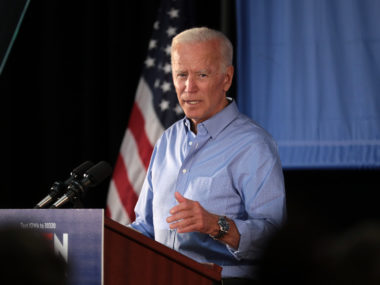Few would contest the notion that Turkey is a rising regional power in the Middle East, although the exact role that Turkey will (or should) play in the region is open to question. Turkey’s central role in the current crisis in Syria only helps to bring home the importance of Turkey in the future of the Middle East. Given the persistent importance of the region to the strategic interests of the United States, Turkey will play an increasingly important role in U.S. foreign policy. However, does Turkey’s position on the frontlines of the Syrian civil war promise to help or hurt long-term U.S. interests? I suggest that while Turkey’s posture in the region more closely mirrors U.S. interests than it did before the crisis, this may make it a less effective U.S. ally.
Turkey’s rising influence in the Middle East is the product of (at least) two things: its rapidly growing economy, which is the largest in the region, and its rather innovative and assertive foreign policy over the last decade or so. I focus on the latter here. The cornerstone of Turkish regional foreign policy during the reign of the Justice and Development Party, or AK-P, is the “zero problems with neighbors” policy. While “zero problems” did not really lead to transformative changes in Turkey’s relations with all of its neighbors, e.g., Armenia, it did result in improved relations with other formerly hostile neighbors. Syria is the most striking example here. While improved relations with Syria can be traced back to the 1998 Adana accords, which led to the removal of Syrian support for the PKK and the ejection of Abdullah Ocalan from Damascus, warm relations between Damascus and Ankara really began around 2004. While many in the U.S. viewed Turkey’s embrace of Syria (and its relations with Syria’s ally Iran) with suspicion, improved relations led to a sensible and mutually beneficial economic relationship. Turkey’s new relationship with Syria also gave a key U.S. ally and NATO member more potential leverage among traditional adversaries in the Middle East.
It was hoped that the strong Turkish-Syrian would bear some promise relative to key U.S. interests. I provide two examples. In 2007-2008, Turkey played the role of mediator between Syria and Israel, in talks that in theory could have played a significant role in restarting the dormant peace process. Syria had long been an important, but difficult, part of the Middle East peace process and Turkey’s relationship with Syria and Israel seemed to provide an opportunity to begin resolving the dispute between the two states. The subsequent conflict over events in the Gaza scuttled this possibility, and also led to an unfortunate fissure in Turkey’s relationship with Israel. Turkey’s relationship with Syria and Iran, a key Syrian ally, also seemed to give it some potential leverage as a mediator for the U.S. and Europe in discussions over the Iranian nuclear program. However, Turkey’s role aiding the Syrian opposition has led to a cooling of relations with Iran as well, reflected in Iranian attempts to move a recent set of talks from Istanbul. In sum, while on the surface it seemed that the “zero problems” policy led Turkey to closer relationships with U.S. adversaries, it also arguably provided the U.S. with a key ally that had more potential leverage with Syria or Iran than the U.S. was likely to obtain with threats or sanctions. Given the strong relationship between President Obama and Prime Minister Erdogan, it seemed as if there was potential for significant U.S.-Turkey collaboration on Middle East policy, even if Turkish policy would not always mirror U.S. interests.
The implication here is that Turkey, and perhaps paradoxically the U.S., has lost some potential leverage in the region through the Syrian crisis, although certainly not by choice. Turkey rather quickly and sharply broke ranks with Syria as Assad’s regime turned to repression last year, and has since played a key role in efforts to aid the Syrian opposition, condemn the Assad regime, and ask for Assad to step down. (Turkey does not possess much consistency over its concern for human rights, e.g., its reprehensible response to the massacre of Kurds at Uludere by its own security forces. This is probably for a different post though.) Turkey hosts at least Syrian 25,000 refugees, has set up camps along its border with Syria, and has even suggested that military intervention is possible following a border incident with Syrian security forces. “Zero problems” foreign policy aside, Turkey again finds itself siding with the U.S. (and NATO) against a longtime U.S. adversary, and now seems more eager to intervene than the U.S. and Europe (see Steve Saideman’s great post on the reluctance to intervene). The Turkish government even suggested that it might trigger Article 5 of the NATO charter in response to Syrian aggression at the border. Given the aggressive and brutal tactics being employed by the Assad regime to close off its border with Turkey, future clashes are very likely. While the U.S. has an ally supportive of its general position, it has an ally that might drag it further into the Syrian conflict than it wants to go rather than give it a unique opportunity to influence countries such as Syria and Iran. Turkey had gained credibility in the region because it was no longer seen as subservient to U.S. interests. The U.S. now has an ally whose break with Syria and cooling relations with Iran line it up more closely with U.S. positions in the region. However, lining up with the U.S. undermines Turkish leverage with these key U.S. adversaries and decreases Turkish credibility in the region.








0 comments